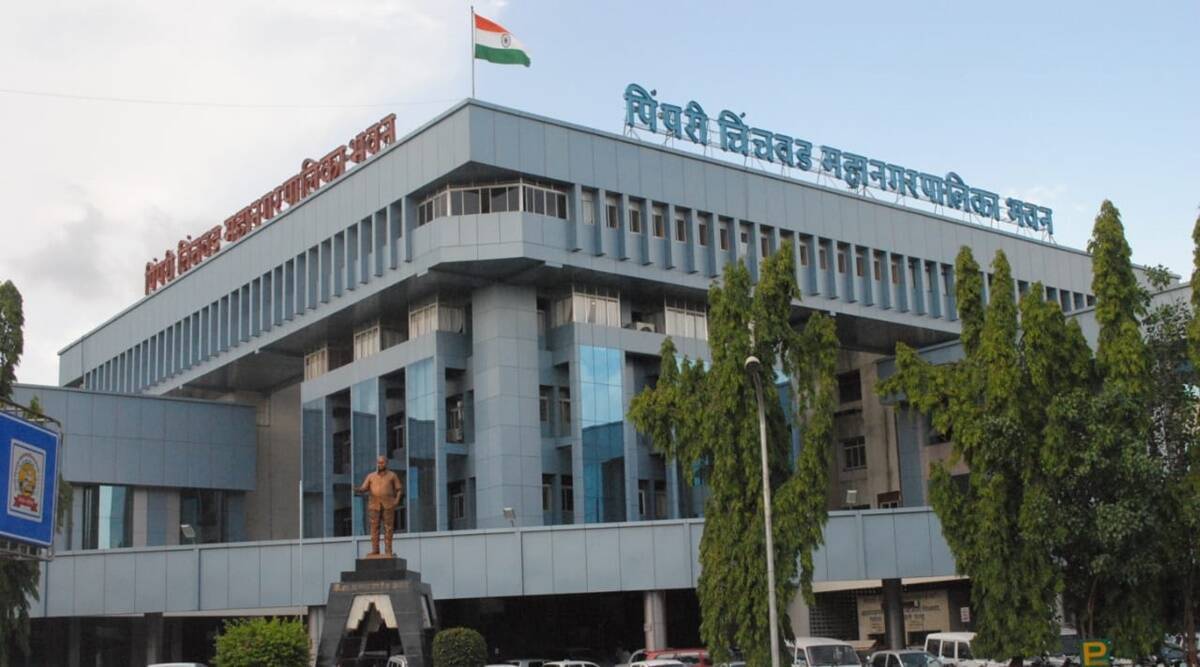 In the 600 residential societies, 50 per cent of the members have not paid their property tax for one year or more. (File)
In the 600 residential societies, 50 per cent of the members have not paid their property tax for one year or more. (File)The Pimpri-Chinchwad Municipal Corporation’s (PCMC’s) decision to stop collecting wet garbage from residential housing societies from October 2 has not gone down well with residents. Arguing that it would put an additional financial burden on them, the societies have suggested that the PCMC, instead, set up ward-wise wet waste processing plants to resolve the issue.
“We strongly oppose the move by PCMC not to lift the wet waste of housing societies generating more than 100 kg of wet waste. PCMC should instead continue with the current arrangement and set up ward-wise wet waste processing by forming clusters of housing societies,” said Dattatraya Deshmukh, chairman of Pimpri-Chinchwad Cooperative Housing Societies Federation.
The PCMC had announced that from October 2, it will not lift wet garbage from “bulk wet waste generating residential societies”. The societies instead have been told to process wet waste within their premises and convert it into compost.
“We will not be lifting wet waste residential housing societies who generate 100 kg and more wet garbage. These societies will have to set up their own wet waste processing plants and process the waste in their own premises which later can be sold as compost,” PCMC Deputy Municipal Commissioner Ajay Charthankar told The Indian Express on Wednesday.
There are 710 such residential societies that generate 100 kg wet waste every day under the PCMC jurisdiction, officials said, adding that the decision was taken as per central government directives marking six years of the Swachh Bharat Mission on October 2.
Officials said as per the Solid Waste Management Rules, 2016, it is mandatory for residential housing societies to segregate dry and wet waste and then process the wet waste on their own.
Deshmukh, however, pointed out that there were housing societies that came up before 2016 that are generating 100 kg waste today. “But in such societies, the builders have neither set up waste processing plants nor have left space. When the societies themselves are struggling for parking space, how will they find space for a wet waste processing structure?” he asked.
Highlighting their main opposition to the PCMC move, Deshmukh said, “Societies that came up after 2016, and where builders have provided wet waste processing plants, face the problem of recurring expenditure. Such societies will have to appoint at least one person for this task. He has to be paid a monthly salary, then there is expenditure of electricity and maintenance…”.
PCMC has asked societies to hand over the task of processing wet waste to private parties. “The private parties charge Rs 50 to Rs 100 or even more per flat, per month, for processing wet waste. If a society has 100 flats, then they will have to spend at least Rs 1 lakh per year. When housing societies are already spending money on water tankers, why would they want to incur additional burden?” he argued.
Urging PCMC to set up ward-wise wet waste processing plants, Deshmukh said, “PCMC should make cluster of housing societies and set up ward-wise waste processing plants. One plant for each ward. Societies will then have no problem in disposing off their waste. This will also force hotels to approach the plants as otherwise they are openly dumping their food waste at night on empty plots.”
Tejaswini Domse Sawai, who heads the Pimpri-Chinchwad branch of the Poona District Housing Federation, was also against the PCMC move. “We are not in favour of PCMC not lifting the wet waste. PCMC should continue to take the responsibility. Firstly, how will the societies where the builders have not provided wet waste processing plants or space for installing the system handle the whole issue? Already every society is fighting for space for parking vehicles,” Sawai pointed out. “Secondly, in a 400-flat society, at least 500 kg compost is generated daily. Suppose some residents purchase it one day, they will not be doing so every day. Then who will buy the compost which will keep piling up? Residents will be literally sitting on heaps of wet garbage,” Sawai added.
Activist Sachin Godambe said the PCMC cannot shirk its responsibilities. “This is a wrong decision. We pay huge property tax to PCMC so that it provides us with all basic amenities. In this case, PCMC is clearly shirking its responsibility. It cannot leave the job of wet waste processing plants to residents who have neither skills, expertise or adequate resources to run the plants. Recurring expenditure will become a big problem for residents. The PCMC should set up garbage-processing plants at short distances instead of placing burden on societies,” Godambe said.
Sanjeevan Sangle, who heads the Chikhli-Moshi-Pimpri-Chinchwad Housing Society Federation, said, “We strongly oppose PCMC’s decision. We request PCMC to reconsider the move as it will not be feasible for societies to carry out the task each day. We pay taxes to PCMC and therefore it is the responsibility of the PCMC to ensure proper garbage disposal systems, clean drains, and adequate water supply systems. PCMC should not unnecessarily burden societies with such onerous tasks.”